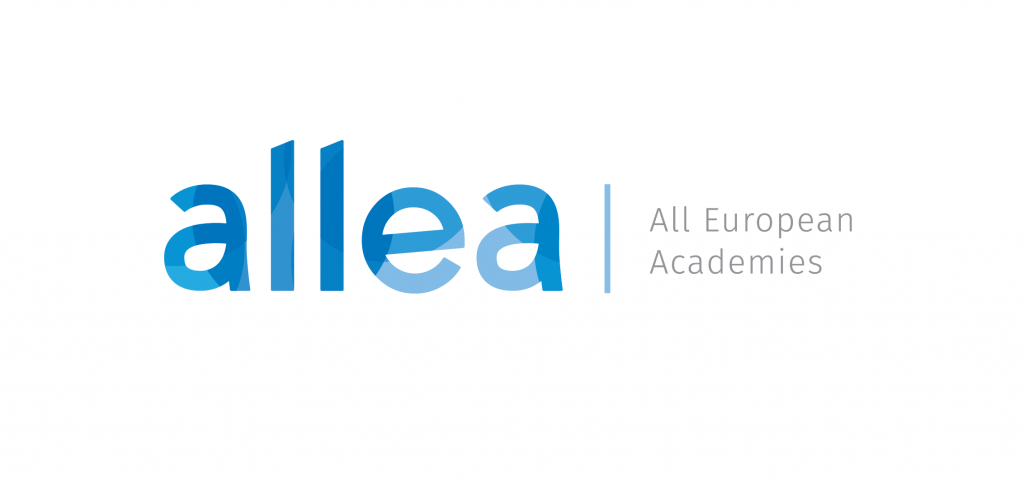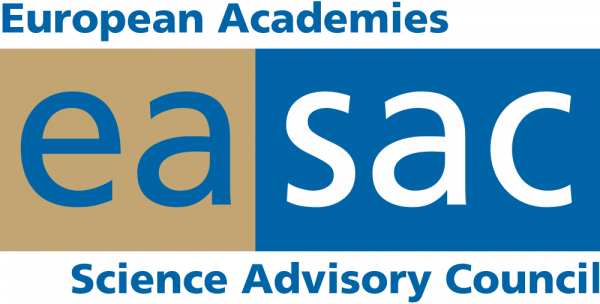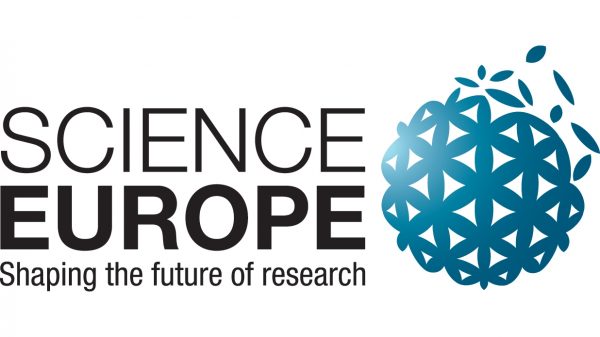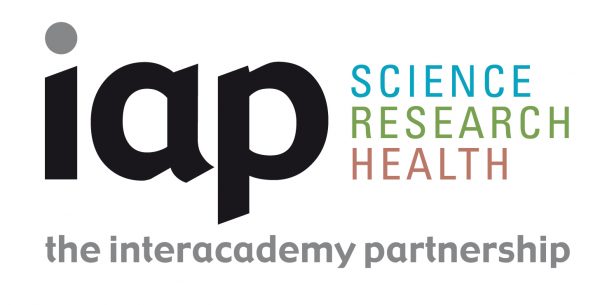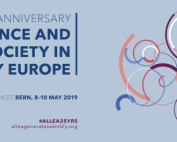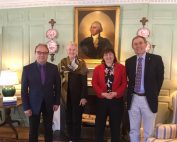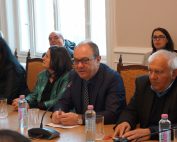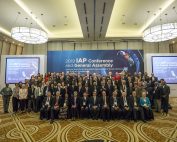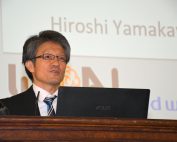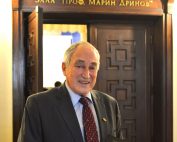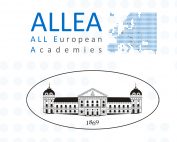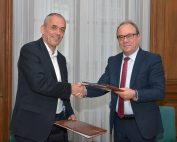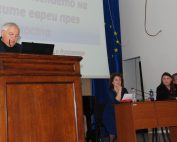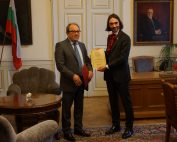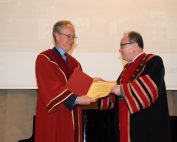International cooperation
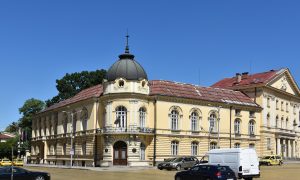 The Bulgarian Academy of Sciences performs a significant part of the international scientific cooperation of the country. The Academy has maintained traditional ties with foreign scientific and educational organizations for many years and implements an active policy aimed at international scientific partnership.
The Bulgarian Academy of Sciences performs a significant part of the international scientific cooperation of the country. The Academy has maintained traditional ties with foreign scientific and educational organizations for many years and implements an active policy aimed at international scientific partnership.
The Department of International Relations, established in 1957, fulfills the administrative functions required for diverse international activities of the Academy which also include the coordination of national programs and projects involving some of the Bulgarian universities. The tasks of the Department consist in supporting international scientific cooperation and expanding the prospectives for research of the Bulgarian Academy of Sciences through the realization of opportunities for joint work of Bulgarian and foreign scientists.
The Bulgarian Academy of Sciences conducts scientific research in accordance with universal values, national traditions and interests. It participates in the development of world science and helps to multiply the spiritual and material wealth of the nation.
Administrative services
Department of International Relations
The International Relations Department, established in 1957, fulfills the administrative functions required for many diverse international activities of the Academy which also include the coordination of national programs and of programs and projects involving some of the Bulgarian universities. The tasks of the Department consist in supporting international scientific cooperation and expanding the research prospectives of the Bulgarian Academy of Sciences through the realization of opportunities for joint work of Bulgarian and foreign scientists.
In the day-to-day work of the Department, the exchange of research visits under bilateral agreements of the Bulgarian Academy of Sciences (the number of which exceeds 45), the administrative support for the Academy’s participation in the framework programs of the European Union as well as activities providing the membership of BAS in international organizations prevail.
The International Relations Department disseminates information among BAS units on the deadlines for submitting projects, opportunities for specialization abroad, international scientific prizes, opportunities for young scientists to participate in conferences abroad and others. The department also performs activities related to the provision of funds for business trips abroad and the reception of foreign scientists in Bulgaria, with the provision of visas, accommodation and transport. It takes part in the organization of conferences, lectures, award ceremonies, presentations and others.
International Relations Staff
Gabriella Tchouprenska, Acting Head of Department, Chief Expert
Armenia, International organizations and European programmes, Marie Sklodowska-Curie Actions National Contact Point, Horizon Europe Framework Programme, EURAXESS LoCP
Phone: +359 2 979 5241
Е-mail: tchouprenska@cu.bas.bg
Tomina Galibova, Chief Expert
Poland, Turkey, Sweden, EEA grants – Norway, Iceland, Liechtenstein
ERASMUS coordinator – staff mobility, incoming mobility, agreements with Programme countries
Phone: +359 2 979 5387
Е-mail: tominaglb@cu.bas.bg
E-mail: erasmus@cu.bas.bg
Tsvetomir Yonchev, Junior Expert
Hungary, Ukraine, Belarus, Azerbaijan, Egypt, Israel, Belgium, Moldova, Kazakhstan, Iran
Phone: +359 2 979 5235
Е-mail: tsyonchev@cu.bas.bg
E-mail: erasmus@cu.bas.bg
Irena Ivanova, Junior Expert
Italy, Spain, Romania, Greece, Serbia, Macedonia, Slovenia, Croatia, Bosnia and Herzegovina, Albania, Kosovo, Montenegro
Phone: +359 2 979 5233
Е-mail: iivanova@cu.bas.bg
Aleksandra Dimitrova, Junior Expert
Austria, Germany, France, Lithuania, Latvia, Estonia, China, Japan, South Korea, Vietnam, Taiwan, Mongolia, Morocco, Tunisia, Pakistan, Malaysia
Phone: +359 2 979 5236
E-mail: a.dimitrova@cu.bas.bg
Nadezhda Sabeva, Junior Expert
Czech Republic, Slovak Republic, Protocol
Phone: +359 2 979 5236
E-mail: sabeva@cu.bas.bg
Bilateral cooperation and exchange agreements
| Country | Institution | Details | Free quota | Requirements |
|---|---|---|---|---|
| Austria | Austrian Academy of Sciences | Agreement signed: 1977 Last updated: 1999 Validity: open-ended Joint projects: none Exchange quota: not fixed | No free quota (projects only) | Visits to Austria: on invitation by members of AAS |
| Albania | The Academy of Sciences of Albania | Agreement signed: 1990 Last updated: 2014 Validity: open-ended Joint projects: none Exchange quota: not fixed | Bilaterally signed project proposals submitted to both organizations | |
| Belarus | The National Academy of Sciences of Belarus | Agreement signed: 2002 Last updated: 2016 Validity: 3 years Joint projects: 9 Exchange quota for each of the parties: 10 man/weeks | No free quota (projects only) | Bilaterally signed project proposals submitted to both organizations |
| Belgium | Research Foundation - Flanders (F.W.O.) | Agreement signed: 2000 Validity of projects: 3 years Joint projects: 9 Exchange quota: 30 man-weeks | No free quota (projects only) | Bilaterally signed project proposals submitted to both organizations |
| Belgium | National Fund for Scientific Research - Wallonie (FNRS) | Agreement signed: 1994 Updated: every year Validity: 3 years Joint projects: 9 Exchange quota: 20 man/weeks Two stipends of 800 Euro per month for max. two people and for no more than three months for each of the parties | No free quota (projects only) | Bilaterally signed project proposals submitted to both organizations |
| Estonia | Estonian Academy of Sciences | Agreement signed: 1996 Updated: 2018 Validity: 3 years Joint projects: 4 Exchange quota: 51 man-days | No free quota (projects only) | Bilaterally signed project proposals submitted to both organizations |
| Germany | German Research Foundation (DFG) | Agreement signed: 1973 Updated: 2008 Validity: open-ended No exchange quota | No free quota | Since February 2012: individual online applications on the website of DFG |
| Bosnia and Herzegovina | Academy of Sciences and Arts of Bosnia and Herzegovina | Agreement signed: 2016 Validity: open-ended Joint projects: none | No free quota (projects only) | Bilaterally signed project proposals submitted to both parties |
| Greece | The Aristotle University of Thessaloniki | Agreement signed: 2006 Validity: open-ended Joint projects: 3 Exchange quota: 75 man-days | Free quota: on invitation, part of the total exchange quota | Bilaterally signed project proposals submitted to both organizations; invitation from the foreign partner |
| Greece | University of Athens | Agreement signed: 2010 Validity: 5 years Joint projects: none The Agreement envisages exchange of scientists, staff and PhD students | Invitation from a foreign partner | |
| Italy | National Research Council (CNR) | Agreement signed: 1967 Last updated: 2012 Validity: 6 years; validity of projects: 3 years Joint projects: 10 2000 Euro per project a year for Bulgarian scientists; each organization covers the expenses of its own scientists | Bilaterally signed project proposals submitted to both institutions | |
| Kosovo | Academy of Sciences and Arts of Kosovo | Agreement signed: 2012 Validity: open-ended Joint projects: none | No free quota (projects only) | By availability of financial resources |
| Spain | Spanish National Research Council | Agreement signed: 2003 Frozen since 2012 on request of the Spanish side | ||
| Latvia | Latvian Academy of Sciences | Agreement signed: 1996 Last updated: 2018 Validity: 3 years Joint projects: 6 Exchange quota: 12 man-weeks | On invitation, part of the total quota | Bilaterally signed project proposals submitted to both organizations |
| Lithuania | Lithuanian Academy of Sciences | Agreement signed: 2007 Validity: open-ended Joint projects: 4 Exchange quota: 8 man-weeks | On invitation, part of the total quota | Bilaterally signed project proposals submitted to both organizations |
| Macedonia | Macedonian Academy of Sciences and Arts | Agreement signed: 1999 Last updated: 2014 Validity: open-ended; validity of projects: 2 years Joint projects: 15 Each organization covers the expenses of its scientists | Bilaterally signed project proposals submitted to both organizations | |
| Moldova | Moldavian Academy of Sciences | Agreement signed: 1999 Validity: open-ended Joint projects: none | Exchanges depend on the availability of funding | |
| Poland | Polish Academy of Sciences | Agreement signed: 1959 Last updated: 2018 Validity: 3 years (2018-2020) Joint projects: 31 Exchange quota: 40 man-weeks | Free quota: on invitation, within the total quota | Bilaterally signed project proposals submitted to both organizations |
| Republika Srpska in Bosnia and Herzegovina | Academy of Sciences and Arts of Republika Srpska in Bosnia and Herzegovina | Agreement signed: 2015 Validity: open-ended Joint projects: none | No free quota (projects only) | By interest on the side of both organizations |
| Romania | Romanian Academy (RA) | Agreement signed: 1959 Last updated: 1999 Validity: open-ended Joint projects: 43 Exchange quota: 60 man-weeks | 10 weeks | Bilaterally signed project proposals submitted to both organizations |
| Russia | Russian Academy of Sciences (RAS) | Agreement signed: 1958 Last updated: 2012 Agreement on cooperation in the field of fundamental space research Exchange quota: 35 man-weeks Projects: 35 | ||
| Slovakia | Slovak Academy of Sciences | Agreement signed: 1994 Last updated: 2018 Validity: 3 years Joint projects: Exchange quota: 14 man-weeks | 1 month for young scientists | Bilaterally signed projects, on invitation for the free quota |
| Slovenia | Slovenian Academy of Sciences and Arts | Agreement signed: 2007 Validity: open-ended Joint projects: 2 Exchange quota: 6 man-weeks | No free quota (projects only) | Bilaterally signed project proposals submitted to both organizations |
| Serbia | Serbian Academy of Sciences and Arts | Agreement signed: 1998 Last updated: 2007 Validity: open-ended Joint projects: 19 Exchange quota: 35 man-weeks | No free quota (projects only) | Bilaterally signed project proposals submitted to both organizations |
| Turkey | Scientific and Technological Research Council of Turkey (TÜBİTAK) | Agreement signed: 2002 Validity: open-ended Joint projects: 4 Exchange quota: individual for each project | No free quota (projects only) | Bilaterally signed project proposals submitted to both parties |
| Turkey | Turkish Academy of Sciences (TUBA) | Agreement signed: 2003 Validity: open-ended Joint projects: none Exchange quota: 6 man-months | Visits of Bulgarian scientists: on invitation by a Turkish partner | |
| Ukraine | The National Academy of Sciences of Ukraine | Agreement signed: 1996 Last updated: 2016 Validity: 3 years Joint projects: 4 Exchange quota: 30 man-weeks | Bilaterally signed project proposals submitted to both organizations | |
| Ukraine | Kharkov National University | Agreement signed: 2006 Last updated: 2017 Validity: 5 years Joint projects: none No exchange quota | Bilaterally signed project proposals submitted to both organizations | |
| Hungary | Hungarian Academy of Sciences | Agreement signed: 1995 (1958) Last updated: 2016 Validity: 3 years Joint projects: 14 Exchange quota: individual for each project | about 3 weeks | Bilaterally signed project proposals submitted to both organizations; invitation for the free quota |
| France | The National Center for Scientific Research (CNRS) | Agreement signed: 1965 Last updated: forthcoming Validity: 4 years Joint projects: 1 No exchange quota | No free quota | Bilaterally signed project proposals submitted to both organizations every two years |
| Croatia | Croatian Academy of Sciences and Arts | Agreement signed: 1997 Last updated: 2007 Validity: open-ended Joint projects: 2 Exchange quota: 8 man-weeks | No free quota (projects only) | Bilaterally signed project proposals submitted to both organizations |
| Montenegro | Montenegrin Academy of Sciences and Arts | Agreement signed: 2003 Last updated: 2006 Validity: open-ended Joint projects: 2 Exchange quota: 3 man-weeks | Availability of financial resources, invitation | |
| Czech Republic | Academy of Sciences of the Czech Republic | Agreement signed: 1993 Last updated: 2017 Validity: 3 years Joint projects: 16 Exchange quota: individual for each project | 2 weeks | Bilaterally signed projects, invitation for the free quota |
| Sweden | Royal Swedish Academy of Letters, History and Antiquities | Agreement signed: 2000 Validity: open-ended Joint projects: 1 Exchange quota: 8 man-weeks | No free quota (projects only) | Bilaterally signed project proposals submitted to both organizations |
| Azerbaijan | Azerbaijan National Academy of Sciences | Agreement signed: 2011 Updated: 2017 Validity: 3 years Joint projects: 6 Exchange quota: 15 man-days | No free quota (projects only) | Bilaterally signed projects |
| Egypt | Academy of Scientific Research and Technology of the Arab Republic of Egypt | Agreement signed: 1991 Last updated: 2016 Validity: 3 years Joint projects: 13 Exchange quota: 12,5 man-weeks | No free quota (projects only) | Bilaterally signed projects |
| Israel | The Israel Academy of Sciences and Humanities | Agreement signed: 1995 Validity: open-ended Joint projects: 4 Exchange quota: 9 man-weeks | if there is unused quota from the total exchange quota | Bilaterally signed projects, invitation for the free quota |
| Israel | Ben Gurion University of the Negev | Agreement signed: 1995 Validity: open-ended Joint projects: 1 Exchange quota: individual for a given project | No free quota (projects only) | Bilaterally signed projects |
| China | The Chinese Academy of Social Sciences | Agreement signed: 2000 Validity: open-ended Joint projects: 2 Exchange quota: 10 man-weeks | if available, within the total exchange quota | Bilaterally signed project proposals submitted to both organizations |
| China | The Chinese Academy of Sciences | Agreement signed: 1986 Last updated: 2002 Validity: open-ended Joint projects: none Exchange quota: 10 man-weeks | No free quota (projects only) | Bilaterally signed project proposals submitted to both organizations |
| Republic of Korea | Korea Institute of Science and Technology (KIST) | Agreement signed: 2012 Validity: automatic renewal every 5 years Joint projects: none | No free quota (projects only) | |
| Mongolia | The Mongolian Academy of Sciences | Agreement signed: 1968 Joint projects: none Exchange quota: no | Bilaterally signed project proposals submitted to both organizations | |
| Taiwan | The National Science Council of Taiwan | Agreement signed: 2001 Validity: open-ended Joint projects: 1 Exchange quota: no | No free quota (projects only) | Bilaterally signed project proposals submitted to both organizations |
| Japan | The University of Tokyo | Agreement signed: 2006 Last updated: 2012 Validity: 3 years Joint projects: none Exchange quota: no | Bilaterally signed project proposals or proposals for bilateral workshops submitted to both organizations | |
| Japan | Science Council of Japan (SCJ) | Agrement signed: 2012 Validity: 5 years Exchange quota: no |
International programs
Programs that have ended
Membership in international organizations
The Bulgarian Academy of Sciences, directly or through its units, is a representative of Bulgaria in intergovernmental organizations which bring together politicians, researchers and public figures working to solve global problems.
The Academy is a member of a number of non-governmental organizations focused on specific research areas that unite leading science centers around the world .
- All European Academies (ALLEA)
- European Academies Science Advisory Council (EASAC)
- European Science Foundation (ESF)
- International Science Council (ICS)
- International Mathematical Union (IMU)
- International Mineralogical Association (IMA)
- International Union of Geological Sciences (IUGS)
- International Union of Pure and Applied Chemistry (IUPAC)
- International Union of Theoretical and Applied Mechanics (IUTAM)
- Committee on Space Research (COSPAR)
- Institute Pasteur
- International Astronomical Union (IAU)
- International Federation for Information Processing (IFIP)
- Union Radio-Scientifique Internationale (URSI)
News
The Honorary sign “Marin Drinov” was bestowed on Prof. Dr. Massimo de Leonardis
Prof. Dr. Massimo de Leonardis received the Honorary sign “Marin Drinov” of the Bulgarian Academy of Sciences at a ceremony held in the Academy on 21 May 2019. Prof. Julian Revalski, Full member of BAS [...]
ALLEA General Assembly 2019
The anniversary General Assembly of ALLEA, the European Federation of Academies of Sciences and Humanities, was held in Bern, Switzerland from 8 to 10 May 2019. The event celebrated the 25th anniversary of the organization. [...]
The Scientific Secretary-General of BAS Prof. Evdokia Pasheva participated in a meeting of the Executive Board of the European Science Foundation (ESF)
The Scientific Secretary-General of BAS, Prof. Evdokia Pasheva, participated in a meeting of the Executive Board of the European Science Foundation (ESF) on 9 May in Rome, Italy. On May 9 and 10, Prof. Pasheva [...]
A working visit to the United States of the President of BAS and the General Scientific Secretary
Prof. Julian Revalski, Full Member of BAS and Prof. Evdokia Pasheva, General Scientific Secretary, were on a working visit to the United States from April 21 to April 25, 2019. During the visit, they participated [...]
Five areas of cooperation were discussed by scientists from the Bulgarian Academy of Sciences and the Chinese Academy of Social Sciences
Five areas of cooperation were discussed by scientists from the Bulgarian Academy of Sciences and the Chinese Academy of Social Sciences at a joint meeting held on 18 April 2019 at the Academy. [...]
The President of the Bulgarian Academy of Sciences Prof. Julian Revalski participated in the InterAcademy Partnership (IAP) triennial General Assembly
The President of the Bulgarian Academy of Sciences Prof. Julian Revalski participated in the InterAcademy Partnership (IAP) triennial General Assembly in Songdo, Korea, on 11 April 2019. The meeting, hosted by the Korean Academy of [...]
Dr. Hiroshi Yamakawa: After 2030, artificial intelligence will outgrow the human
Artificial Intelligence is an extremely fast-growing field of science and the world-wide competition for its development and application is highly controversial. The US and China are likely to remain leaders in the development of artificial [...]
New book by Academician Nikola Sabotinov about the Bulgarian innovation in laser science
Academician Nikola Sabotinov presented his new book "The Laser" in "Prof. Marin Drinov" Hall at the Bulgarian Academy of Sciences. The book is devoted to one of the significant Bulgarian achievements in the field of [...]
First international science forum of the Alliance of International Science Organizations (ANSO)
The President of BAS, Acad. Julian Revalski, participated in the first international science forum of the Alliance of International Science Organizations (ANSO) in the Belt and Road Region which took place from 3 to 5 [...]
General Assembly of the Federation of All European Academies (ALLEA) 2018
The General Assembly of the Federation of All European Academies (ALLEA) 2018 will be held on 16 and 17 May 2018 in BAS. It will be held in parallel with a scientific symposium on Science [...]
BAS and CNRS have renewed the Agreement on scientific cooperation
The Agreement on Scientific Cooperation between the Bulgarian Academy of Sciences and the National Center for Scientific Research (CNRS), France, was renewed on 27 March 2018 in Paris. Academician Julian Revalski, President of BAS, [...]
75th anniversary from the salvation of Bulgarian Jews was commemorated in BAS
A meeting on the occasion of “75th Anniversary from the Salvation of Bulgarian Jews during the Second World War” took place in the Big Hall of the Bulgarian Academy of Sciences. The event was organized [...]
An inspirational meeting with Fields Medalist Cédric Villani in BAS
An inspirational meeting of pupils, students and scientists with the world-famous mathematician and Field’s medalist Cedric Villani took place on March 16 in the Big Hall of the Bulgarian Academy of Sciences. During the meeting-conversation, [...]
BAS awarded the honorary title of „Doctor Honoris Causa“ to Dr. Eric Verdin
The Bulgarian Academy of Sciences awarded the honorary title of Doctor Honoris Causa to Prof. Eric Verdin, President of The Buck Institute for studying aging in the United States. The title was awarded for his [...]
Scholars presented the book “Thracian Antiquity: Technological and Genetic Studies, History and Intangible Heritage“
A new book, within the general academic project “Thracians – Genesis and Development of the Ethnos, Cultural Identities, Civilization Relations and Heritage of the Antiquity”, with the results of two years of research work, was [...]




